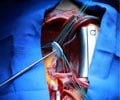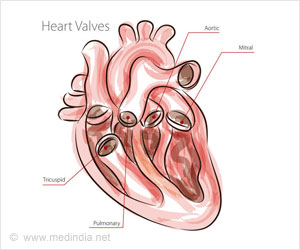Patients with severe tricuspid regurgitation who have no other options available to them in the U.S. have hope with a new tricuspid valve replacement device.

‘First transcatheter tricuspid valve has been successfully implanted in an 80-year-old woman in the US with severe tricuspid regurgitation when no other options were left.’





In severe cases, it can cause pressure to rise in the top and bottom right-sided chambers of the heart, causing the chambers to expand and weaken over time, which leads to heart failure.Tricuspid regurgitation is common among young adults in the US. Mild cases can also occur in about 15% of adults. About 1.6 million people in the U.S. have moderate or severe cases and some 70 million people have some form of the condition worldwide.
Common symptoms associated with Tricuspid regurgitation include fatigue, swelling of the legs, abdominal bloating, and shortness of breath. People who have been admitted for heart failure may also be candidates for the procedure.
Hoping to leverage the experience with very sick patients who are out of options, researchers lead a clinical trial that can better evaluate the safety and efficacy of this novel valve in all patients.
Without the requirement of open-heart surgery, this minimally invasive tricuspid valve replacement procedure can be performed with a shorter procedural time, allowing for faster recovery, and the ability for patients to return home in a matter of days.
First Transcatheter TriValve System Implanted for Tricuspid Regurgitation
Pioneering this novel valve replacement approach, researchers successfully performed the first U.S. procedure for Norma O’Connor, an 80-year-old Detroit-area woman with severe tricuspid regurgitation, when it became evident that no other means would work. Traditional valve replacement was not medically viable for the patient, who is currently thriving after surgery.Advertisement
The new valve started to function immediately upon positioning in the heart, and the right side of the heart’s function started improving within minutes of a successful implant.
Source-Eurekalert














